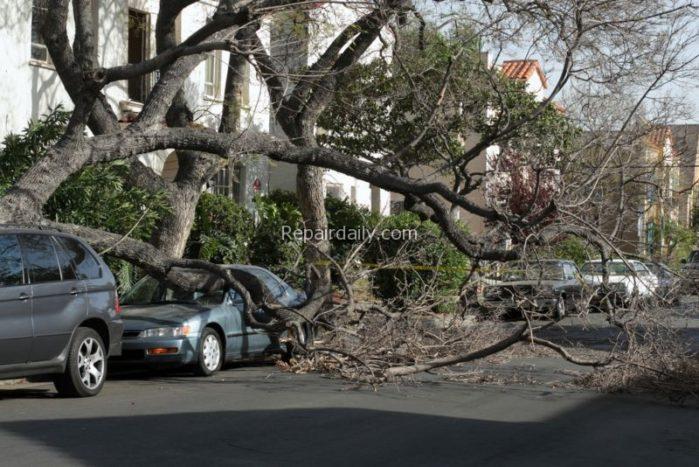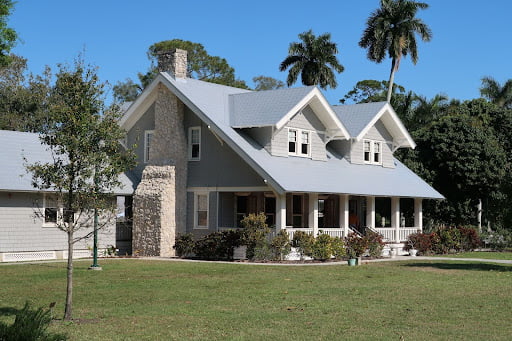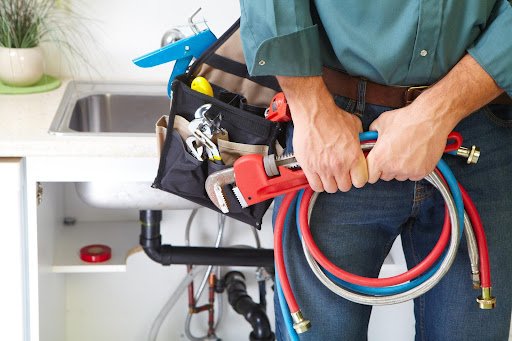
Plumbing problems aren’t just a hassle—they’re a gamble. One leaky pipe can spiral into thousands of dollars in repairs, and the kicker? Home insurance might not cover it. Many homeowners assume their policy has their back for anything water-related, but that’s only half true. Insurance often covers the damage caused by plumbing failures—not the actual plumbing failure itself. That’s why spotting issues early isn’t just smart—it’s critical.

Common Plumbing Problems That Homeowners Face
Homeowners often deal with the usual suspects: leaky faucets, clogged drains or toilets, low water pressure, running toilets, and slow-draining sinks. But those are just the surface-level issues. More serious problems—like corroded pipes, sewer line backups, slab leaks, or water heater failures—can creep in quietly and cause major damage if left unaddressed.
What sets proactive homeowners apart is their ability to notice early warning signs: strange smells, gurgling sounds, damp drywall, or unexplained spikes in the water bill. It’s like your house is whispering, “Hey, something’s not right.” If you listen early, you can avoid far more expensive repairs down the line.
Everyone talks about clogged drains and dripping faucets, but the issues that do the most damage are usually the ones you don’t see coming—until it’s too late.
Savvy homeowners keep an eye out for pressure fluctuations, which can signal blockages or deteriorating pipes. They notice “ghost moisture”—musty smells, humid patches, or sweating walls—that may point to hidden leaks. Intermittent slow drains might seem harmless, but they could be early signs of sewer line intrusion, especially from tree roots. And if a shutoff valve doesn’t actually stop the water when it should, that’s a quiet failure waiting to become a crisis.
The most expensive problems are often the ones behind walls or beneath concrete. A proactive plumbing inspection every two to three years might not sound urgent—but it could save you five figures in repairs.
Does Home Insurance Cover Plumbing Issues?
Yes—but with conditions. Home insurance typically doesn’t cover the plumbing issue itself, like repairing a leaky pipe. What it does cover is the sudden and accidental water damage that results from that issue. In other words, the policy won’t pay to fix the pipe, but it will help cover the cost of repairing damaged walls, floors, or belongings.
The catch is timing and cause. If the problem developed slowly or was due to neglect—like a drip that’s been going on for months—your claim may be denied. Insurance companies draw a hard line between accidents and maintenance issues.
The reality is this: home insurance isn’t a backup plan for plumbing problems—it’s a disaster recovery fund.
It’s meant to step in when something breaks unexpectedly and causes damage. But it won’t cover rusty pipes, reimburse you for long-ignored leaks, or pay for system upgrades just because your plumbing is old.
If you wouldn’t call it an accident, your insurer probably won’t either.
When Does Insurance Cover Water Damage from Plumbing?
You’re generally covered if the damage was sudden, accidental, and happened inside your home. For instance, if a pipe bursts unexpectedly and floods your living room, your insurance will likely cover the resulting water damage.
But—and it’s a meaningful but—if the issue developed over time, or stemmed from long-term problems like corrosion, mold, or ignored maintenance, coverage usually doesn’t apply. Insurance is designed to step in when something goes wrong all at once, not when something’s been going wrong slowly for weeks or months.
The basic rule is simple: if it’s sudden and accidental, there’s a good chance it’s covered.
So if a pipe bursts overnight and floods your laundry room, that’s typically covered. But if a slow leak in the wall quietly rots your baseboards over several months, that’s probably not.
A good way to think about it: if you’d be genuinely shocked to walk in and discover the damage, it’s more likely to qualify. But if the signs were there and you chose to ignore them—that part’s on you.
Are Burst or Frozen Pipes Covered by Homeowners Insurance?
Usually, yes—but there’s a catch. If your home was properly heated and maintained, and the pipes freeze and burst anyway, most insurance policies will cover both the water damage and the cost of repairs.

The trouble comes if the burst is seen as preventable. If you left the heat off during a cold snap or failed to take basic precautions—like insulating exposed pipes or shutting off the water during a long winter trip—your claim could be denied. Insurance expects you to meet them halfway.
Coverage hinges on whether you did your part. Keeping the home heated, protecting vulnerable plumbing, and following standard winter prep all show that you took reasonable care. If those steps were skipped, the insurer may see the damage not as accidental, but avoidable.
So when it comes to frozen pipes, the key question is simple: did you give this problem a fair shot at being prevented?
Plumbing Problems That Home Insurance Doesn’t Cover
Here’s the reality: insurance doesn’t pay for neglect, shortcuts, or slow-motion disasters. It’s designed for sudden, unexpected damage—not the problems that build up over time because no one addressed them.
Typically, it won’t cover wear and tear from aging pipes, rust or corrosion, or damage caused by poor workmanship or unlicensed DIY attempts. Slow leaks that went unnoticed for months, root intrusion in sewer lines, or mold and rot from long-term moisture issues usually fall outside your policy’s protection.
Think of it like this—expecting home insurance to cover gradual plumbing decay is like asking car insurance to pay for an overdue oil change. That’s not what it’s for.
Insurance is there for the moments that blindside you—the “how did this even happen?” kind of emergencies. But if the signs were there and got ignored, the cost is probably coming out of your own pocket.
Does Homeowners Insurance Cover Plumbing Repairs or Just the Damage?
Usually, it’s just the damage that’s covered. Home insurance helps with the aftermath—soaked drywall, ruined flooring, soggy furniture—but not the pipe or fixture that caused the mess in the first place.
In other words, policies typically handle the collateral damage, not the root cause. It’s like if a tree falls on your car—insurance will cover the dented hood, but not the removal of every tree in your yard. With plumbing, it’s the same story: they’ll pay for the waterlogged carpet, but not for replacing the corroded pipe that led to the leak.
If you’re looking for help with actual plumbing repairs, that’s where a home warranty or service line endorsement comes in. Different tools for different jobs.
Tips to Help Get Your Plumbing Claim Approved
A few smart moves can make all the difference when a plumbing issue turns serious. The first is speed—act quickly. Stop the leak, take clear photos, and contact your insurer as soon as possible. Don’t wait around or start major cleanup before documenting everything. Capture images not just of the visible damage, but also of the source—whether it’s a burst pipe, valve, or damaged wall.
Keep every receipt, from plumbers to parts to cleanup services. And call a licensed professional, not just a local handyman. If possible, ask your plumber to write up a brief report using phrases like “sudden failure,” “rupture,” or “accidental damage”—language that speaks directly to what adjusters are trained to look for.
Make sure you understand your policy ahead of time. Some plans include special clauses for plumbing or water damage, while others don’t. Optional endorsements like water backup coverage or service line protection can offer extra peace of mind—and potentially save you thousands.
And remember: insurance adjusters will look closely for signs of neglect. Regular maintenance matters, and how you describe the issue matters too. Saying something like, “Yeah, it’s been leaking for a while,” could put your claim at risk. So stay honest, but stay sharp.
Home Warranty vs. Home Insurance: What Covers Plumbing Repairs?
Yes—and it’s a meaningful difference. Home insurance covers sudden water damage to your property, like when a burst pipe soaks your drywall or floods a room. A home warranty, on the other hand, helps pay for repairs or replacement of the plumbing systems themselves when they fail due to age or regular use—things like a broken water heater or a deteriorating pipe.
Think of it this way: insurance covers the aftermath, the mess it leaves behind. The warranty steps in to address the cause. Having both gives you layered protection—one for disaster response, the other for everyday wear and tear.
If you’re looking for a simple comparison, home insurance is like a fire extinguisher. You hope you never need it, but when something goes wrong, it’s essential. A home warranty is more like a wrench set—it’s there for the smaller breakdowns that can escalate if ignored. You don’t have to choose one or the other. To stay ahead of costly plumbing surprises, you really need both.
What to Ask Your Insurance Agent About Plumbing Coverage
There are a few questions every homeowner should ask—before the pipe bursts, not after. Start with the basics: What types of water damage does your policy actually cover? Does it include plumbing repairs, or just the damage left behind? Are you protected in the event of a sewer backup or sump pump failure? What about gradual damage from slow leaks? And does your coverage place limits on mold remediation or water restoration? It’s also worth asking whether you can add service line protection to extend your safety net even further.
But skip the yes-or-no questions and go deeper—ask the ones that reveal how much gray area your policy leaves. Instead of “Is water damage covered?” ask, “Do I have coverage for slow or hidden leaks?” Push for specifics like, “How does this policy define accidental water damage?” or “Is there a cap on mold remediation?” And don’t forget to ask about extras: “What add-ons are available for plumbing and water-related claims?”
These aren’t just coverage questions—they’re clarity questions. They show your agent that you’re not just trying to be insured, you’re trying to be informed. And trust me, that kind of mindset gets noticed.

